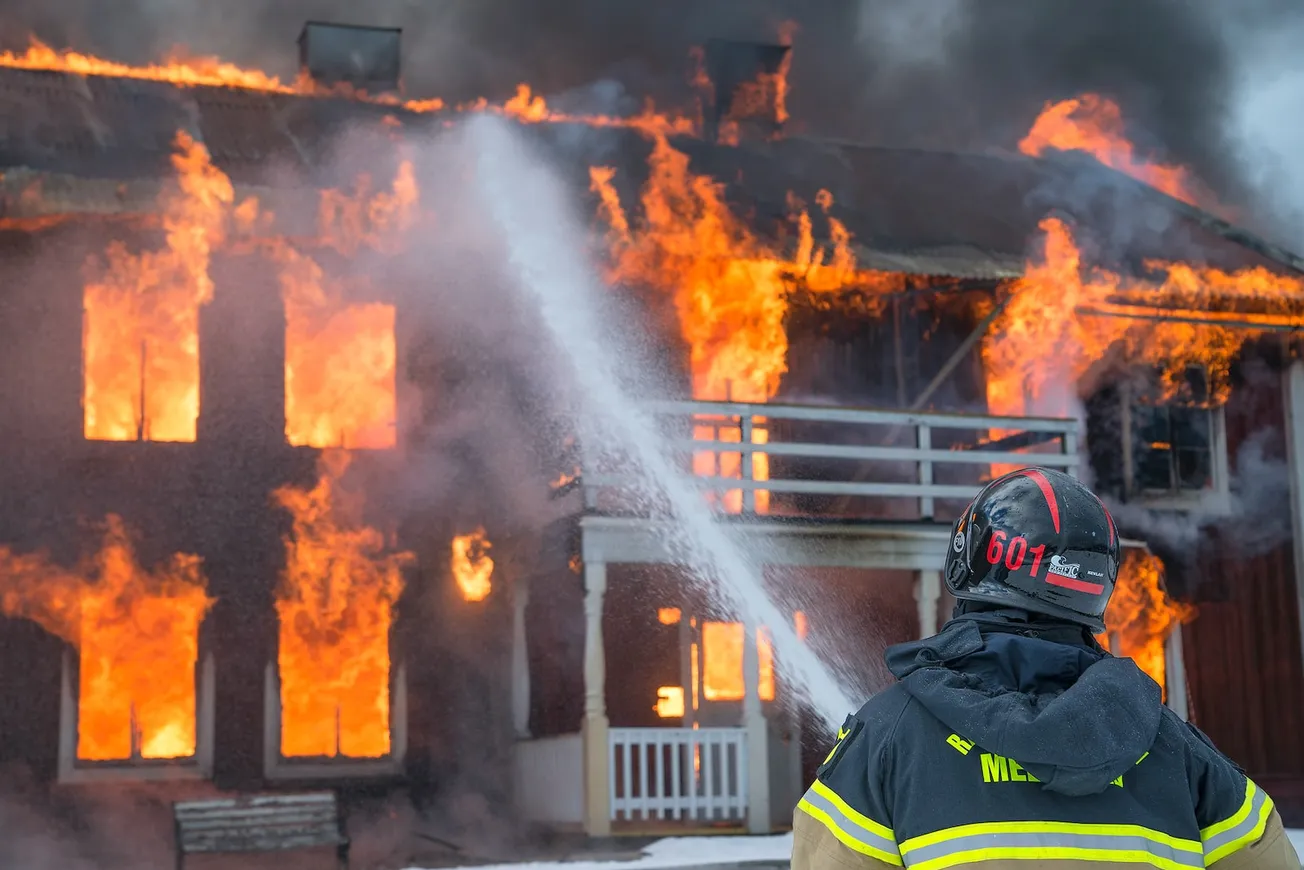Bryce Edwards
Dr Bryce Edwards is Political Analyst in Residence at Victoria University of Wellington. He is the director of the Democracy Project.
The Labour Government has once again proven itself to be very competent in a crisis. Cyclone Gabrielle has allowed Prime Minister Chris Hipkins to demonstrate his impressive disaster management communication.
Labour is very good with the political firefighting required to deal with such disasters – as they have shown in the past with their response to the Christchurch mosque attack, the Whakaari White Island eruption, and the initial stages of Covid.
And, in fact, the last National Government wasn’t too bad at crisis management either. John Key and Bill English received plaudits for the way they dealt with the global financial crisis, the Pike River disaster, and the Canterbury earthquakes.
And yet, both Labour and National have proven to be atrocious at longer-term planning and investment in the things that really matter. The big problems of society never get the attention they deserve and, slowly but surely, those problems mount up, unaddressed, and actually start producing more and more crises – such as the disasters of the last month – which politicians are then forced to react to.
The Polycrisis exposed
We now have a “polycrisis” of problems blighting New Zealand, which our politicians seem unwilling or unable to properly address. The term “polycrisis” is being used around the world to denote simultaneous challenges that are often linked and reinforcing: climate change, infrastructure deficits, inflation, economic inequality, Covid, and war.
The Herald’s Thomas Coughlan highlighted last week that polycrisis had been the word most used at the recent Davos meeting of world elites, but he suggested “permacrisis” – the Collins dictionary “word of the year” – was more apt, which he defined as “the sense of living through an unfolding sequence of crises.”
New Zealand’s political polycrisis has been made worse by the weather events of the last weeks. The Spinoff’s Duncan Greive explains this, saying:
“Because Auckland’s floods and Cyclone Gabrielle did not land on a country which was running smoothly. They dropped into one which was suffering through that debilitating modern phenomenon known as the polycrisis: interlinked crises covering inflation, housing, infrastructure, health and more, all operating against and influenced by the climate crisis.”
Labour and National’s infrastructure deficit
At the centre of New Zealand’s polycrisis is an infrastructure deficit in which roads, communications systems, stormwater infrastructure, electricity transmission, hospitals, schools, and so forth, haven’t been adequately funded and built for the requirements of the 21st century.
On top of the infrastructure deficit are other crises created by a lack of attention given to inequality, climate change, and housing. These are massive issues that the current Labour Government continues to pay lip service to but, in nearly six years in power, has done little about. Similarly, previous governments have allowed these crises to worsen.
The problem for the Government and the Opposition is that all of these huge but long-term problems are being starkly exposed – especially by last week’s Cyclone Gabrielle. The risk for the politicians is that the polycrisis and infrastructure deficit will be blamed on them. These things threaten to upend current politics, producing something of a reckoning for our short-term focused political class.
Criticism of politicians is noticeably increasing. Across the political spectrum over the last two weeks there have been some thoughtful critiques made of the failures of successive governments. Newstalk’s Heather du Plessis-Allan has typified this in pointing the finger at Labour and National for constantly avoiding fixing our problems properly.
For instance, Du Plessis-Allan said last week Labour and National are too inclined to “do things on the cheap” with infrastructure, but this cutting of corners just produces more problems for our roading networks, electricity transmission, and so forth. She points out that even before the weather disasters of this month, the infrastructure deficit had reached $210 billion, which means politicians now have some hard questions to face.
Duncan Grieve of the Spinoff has also made a severe critique of the way that the current Minister of Finance Grant Robertson – along with his predecessors – have deliberately ignored investing in critical infrastructure merely so they can parade their low debt figures, and relatively low taxes, to business audiences and the like.
Grieve says it’s “embarrassing” that Robertson and other finance ministers are so proud of the fact that they have underfunded infrastructure in order to be able to boast of their financial nous. And he laments that whenever anyone advocates much higher infrastructure spending they are denounced by Labour or National as being “Muldoonist”.
And yet much of our infrastructure is stuck back in the 1960s, well before Rob Muldoon’s time. As Josie Pagani wrote this week, “This web of pipes and cables is much the same as it was 50 years ago. Like the old ships we send across the Cook Strait, still breaking down like it’s 1968. As I write this, the traffic into Wellington is at a standstill. Trains aren’t running. It’s only raining. We’re not just falling behind in infrastructure. We are falling behind in the politics of sorting it out.”
So much of the tragedy that has been inflicted on the North Island in the cyclone and flooding is a result of political decisions – or failure to make decisions.
For example, Herald political editor Claire Trevett gave one good example last week:
“The cyclone is already highlighting issues that should have been dealt with by the government – and by governments before it: Tairawhiti residents have been calling for something to be done about slash from forestry for years now. Yet nothing has been done. Lo, the slash came down again and farms were hammered again.”
An Opportunity to focus on the polycrisis rather than political gain
Pressure now needs to be applied to New Zealand’s political class to break out of the infrastructure deficit in which low debt and low taxation rank as the most important metrics in evaluating their worth as political leaders.
There has been some progress in this regard. In the last week or so, politicians have suddenly woken up to the need to invest in the bigger problems.
For instance, Christopher Luxon said last week:
“we need to invest now very strongly in climate adaptation and infrastructure… we can’t go rebuilding roads that keep getting wiped out and then get wiped out at the next event.”
Similarly, Grant Robertson has spoken of the need to invest in infrastructure. But without any pressure applied on such politicians, these words are unlikely to go far beyond lip service.
Part of this means dealing with climate change – both in terms of mitigation and adaptation, with the latter being where the new infrastructure debate is heading. There are now many billion-dollar questions about how we plan and shape the physical environment to adjust to the reality of the changing climate.
Building houses will continue to be a major focus – or at least it should be. The current government, in particular, came to power on a campaign about the housing crisis but has turned out to be particularly bad at building houses. Despite the PR hype about a small amount of construction, it is negligible against the size of the housing crisis. Kiwibuild continues to be a farce, and state housing is tiny, contributing to the levels of homelessness and accommodation need.
The problem is we have plenty of brilliant disaster management politicians, but seemingly no politicians who are good at forward-thinking and with the courage to do the right thing. Do-nothing conservatism won’t cut it anymore after recent weather disasters have exposed the extent of the crisis. And the politicians can’t say that the media or public aren’t on board for grappling with the big issues. We have seen in recent weeks just how much appetite there now is for a focus on fixing things.
The Herald recently published an editorial about the cyclone recovery titled “Sticking plasters aren’t enough for these wounds” in which the newspaper explained that “the country faces problems that are decades in the making” but that there is an appetite to grapple with the costs involved, which might be huge. The editorial said, “Some solutions could be more expensive in the short-term but are better for the long term than constantly going through temporary fixes.”
Unfortunately, much of the political debate about the cyclone recovery is still more about how the current crisis might help or disadvantage the electoral position of particular parties and politicians. The expectation is that politicians will once again revert to type, making their calculations about what rebuild policies will help them win or lose the election. Or indeed about what hi-viz jacket and TV coverage will help in the next opinion poll.
That’s to be expected. And in a “bread and butter election” there will naturally be a need for politicians to give the public some immediate succour from their various cost of living crises. But there’s also a need to finally “think big”, even at the risk of being labelled a “Muldoonist”.
This article can be republished under a Creative Commons CC BY-ND 4.0 license. Attributions should include a link to the Democracy Project.










